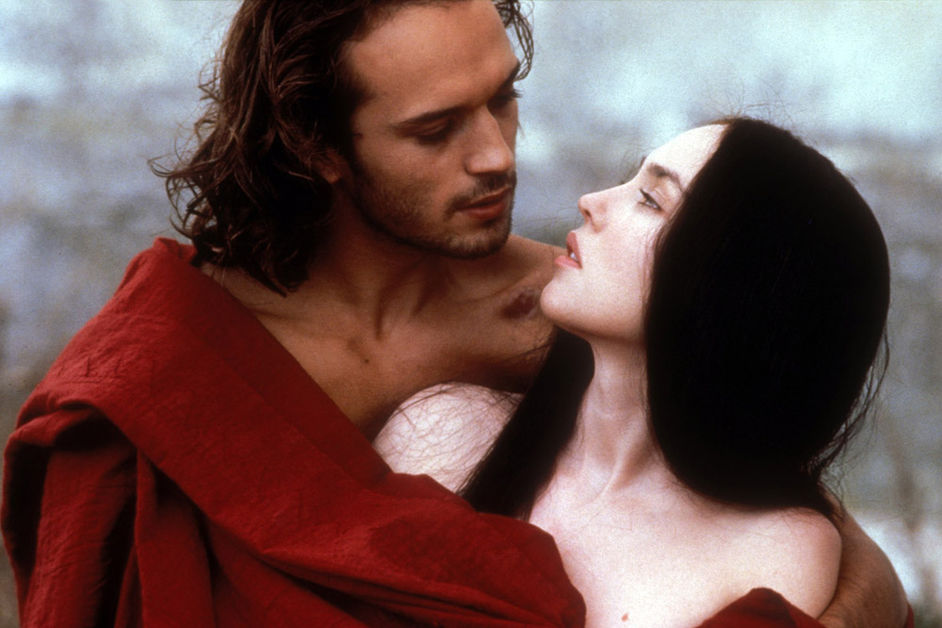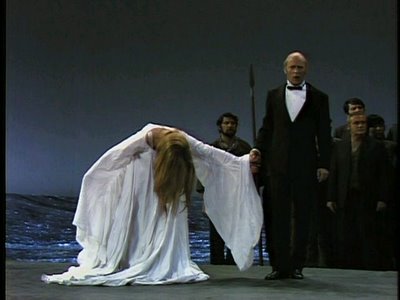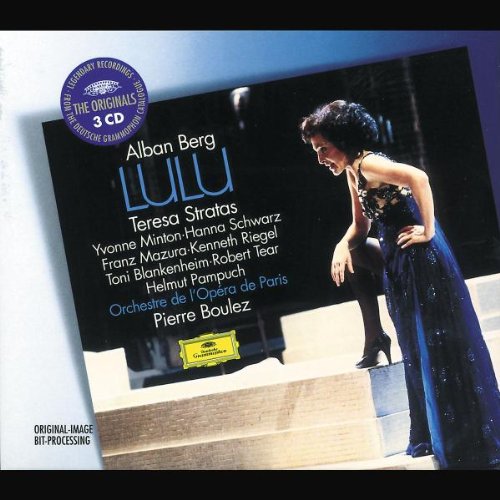It has to be partial, because out of the 10 opera productions from the iconoclastic French actor-director, who died yesterday of lung cancer at the age of 68, I’ve seen but two, on screen only – but a big two at that – and only three of his 11 films. Yet they all had a tremendous impact, one way or another.
Not in a good way - let's get this over with first - as far as Intimacy is concerned: on a blistering hot summer day in Paris, "film by Patrice Chéreau"’ on the poster outside a small cinema in the Beauborg – a poster, moreover, showing a gathering at a cocktail party, suggestive of Rohmer – was enough to lure us in. As soon as the hardcore sex between Mark Rylance and Kerry Fox began, I understood why we were sharing a cinema with four men in macs. OK, so the sex was supposed to be grubby and unerotic, but the film wasn’t good and took a dive for the worst when Marianne Faithfull appeared as a character straight out of EastEnders.
 Well, even the greatest fimmakers have the licence of at least one bad movie, and this seems to have been Chéreau’s. Son Frère is better, a bleak examination of a man's reunion with a brother who is dying from AIDS. Finer still is the earlier La Reine Margot, his one work known to a wider international audience, a splendidly acted costume drama (Vincent Pérez and Isabelle Adjani pictured above) in which sex, this time with rather prettier lovers, sweat and general grubbiness – again – trailblazingly counterpointed the silken finery. Was this the cue for the much less accomplished sex-and-the-Tudors style of recent BBC series?
Well, even the greatest fimmakers have the licence of at least one bad movie, and this seems to have been Chéreau’s. Son Frère is better, a bleak examination of a man's reunion with a brother who is dying from AIDS. Finer still is the earlier La Reine Margot, his one work known to a wider international audience, a splendidly acted costume drama (Vincent Pérez and Isabelle Adjani pictured above) in which sex, this time with rather prettier lovers, sweat and general grubbiness – again – trailblazingly counterpointed the silken finery. Was this the cue for the much less accomplished sex-and-the-Tudors style of recent BBC series?
I missed the one theatre production London caught – I Am the Wind. But there’s still some catching-up possible. On the list now to see are an early critical triumph, L’'Homme Blessé of 1983, featuring a gay protagonist - another actor who appears in his films, Pascal Greggory, was also his lover - and Chéreau’s appearance as a character in Michael Haneke’s 2003 Time of the Wolf.
If the anecdotal circumstances of Intimacy contribute only a negative tribute, my discovery of Wagner’s Der Ring des Nibelungen as a student, through the televising of Chéreau’s mould-breaking Bayreuth centenary production, marks a high point of my life. It was transmitted one act a week – Das Rheingold, obviously, played straight through – to an audience of over a million.
Who knows how many other stories of revelation there must be about that great event. I can only record that when we arrived at Act One of Die Walküre – the only other operatic Wagner I had previously experienced, in the concert hall, alongside the Goodall-conducted Tristan und Isolde at English National Opera, which didn’t do much for me – I was, to put it bluntly, blown away. Such white heat between Peter Hofmann’s Siegmund and Jeanine Altmeyer’s Sieglinde, matched to such unexpected blazing from the Bayreuth Orchestra under Boulez. Mein Gott, they even looked like brother and sister.
 The following week the devastating second act arrived. Gwyneth Jones’s Brünnhilde and Donald McIntyre’s Wotan added to the line-up of searing one-to-ones. This was personenregie, theatre direction that worked intensely on the Greek tragedy-style relationships, as I’d never seen it in the opera house.
The following week the devastating second act arrived. Gwyneth Jones’s Brünnhilde and Donald McIntyre’s Wotan added to the line-up of searing one-to-ones. This was personenregie, theatre direction that worked intensely on the Greek tragedy-style relationships, as I’d never seen it in the opera house.
It was subsequently remarked that when Hofmann, Altmeyer and Jones appeared at the Royal Opera in Götz Friedrich’s production, there was nothing like the same electricity. You could criticise the then-novel language of regietheater - Rhinemaidens as street walkers, Victorian drawing-room gods, the capitalist critique of Chéreau’s Götterdammerung - but you could never deny the music-drama. Götterdammerung’s violent second act, where Brünnhilde is dragged as unwilling bride to Gunter (Gwyneth Jones and Franz Mazura pictured above) while the love of her life, drugged to forgetfulness, marries another and all hell is let loose, caused a ferment in my adolescent susceptibilities. I nearly smashed a plate at the end, fled the Dundas Street flat and ran around Edinburgh’s New Town to let off steam.
Over three decades later, and that Bayreuth Ring, along with Harry Kupfer’s alone among the successors, towers above the rest. We’ve been waiting for a director of Chéreau’s standing at Bayreuth since Kupfer and Werner Herzog's Lohengrin, but both Lars von Trier and Wim Wenders found themselves overwhelmed by the scope of the Ring and withdrew at early stages.
 Meanwhile, Chéreau tackled the world premiere of Berg’s Lulu in its vital three-act version as completed by Friedrich Cerha. Monumental sets dwarfed Teresa Stratas’s utterly compelling heroine; the Marxist critique of DJd society continued. Chéreau is on record as describing opera as a form of necrophilia "for audiences I don’t particularly like”, and if the Paris Opera audience was by no means as tuxedoed and evening-dressed as the Bayreuth crowds, there was still a reflection of contemporary capitalism on stage. Why this production, which I also saw on television, hasn’t been released on DVD (CD cover pictured above) is a mystery.
Meanwhile, Chéreau tackled the world premiere of Berg’s Lulu in its vital three-act version as completed by Friedrich Cerha. Monumental sets dwarfed Teresa Stratas’s utterly compelling heroine; the Marxist critique of DJd society continued. Chéreau is on record as describing opera as a form of necrophilia "for audiences I don’t particularly like”, and if the Paris Opera audience was by no means as tuxedoed and evening-dressed as the Bayreuth crowds, there was still a reflection of contemporary capitalism on stage. Why this production, which I also saw on television, hasn’t been released on DVD (CD cover pictured above) is a mystery.
Chéreau went on to direct, among other operas, Wozzeck at the Théâtre du Châtelet and the Berlin Staatsoper, Don Giovanni at Salzburg and Janáček’s From the House of the Dead in four houses including New York's Metropolitan Opera – that’s one I still have to see on DVD. Fortunately his hand will stretch out from the dead, like that of Agamemnon, when the Aix production of Richard Strauss's Elektra on which he was working while seriously ill this summer hits the Met in 2016. Just like the operas he professed to disdain as museum-pieces, Chéreau’s productions will live on.
Watch chief god Wotan (Donald McIntyre) putting his daughter Brünnhilde (Gwyneth Jones) to sleep in Chéreau's Bayreuth centenary production of Wagner's Die Walküre conducted by Pierre Boulez
Watch two documentaries on the forging of the Ring at Bayreuth















Add comment